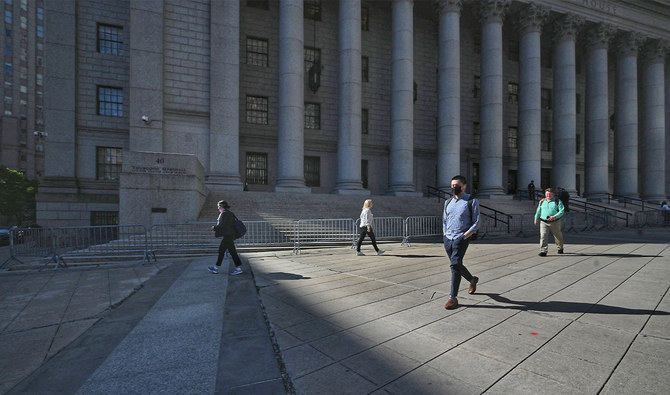NEW YORK: An unvaccinated young adult from New York recently contracted polio, the first US case in nearly a decade, health officials said Thursday.
Officials said the patient, who lives in Rockland County, had developed paralysis. The person developed symptoms a month ago and did not recently travel outside the country, county health officials said.
It appears the patient had a vaccine-derived strain of the virus, perhaps from someone who got live vaccine — available in other countries, but not the US — and spread it, officials said.
The person is no longer deemed contagious, but investigators are trying to figure out how the infection occurred and whether other people were exposed to the virus.
Most Americans are vaccinated against polio, but this should serve as a wake-up call to the unvaccinated, said Jennifer Nuzzo, a Brown University pandemic researcher.
“This isn’t normal. We don’t want to see this,” Nuzzo said. “If you’re vaccinated, it’s not something you need to worry about. But if you haven’t gotten your kids vaccinated, it’s really important that you make sure they’re up to date.”
Health officials scheduled vaccination clinics in New York for Friday and Monday, and encouraged anyone who has not been vaccinated to get the shots.
“We want shots in the arms of those who need it,” Rockland County Health Commissioner Dr. Patricia Schnabel Ruppert said at a Thursday news conference.
Polio was once one of the nation’s most feared diseases, with annual outbreaks causing thousands of cases of paralysis. The disease mostly affects children.
Vaccines became available starting in 1955, and a national vaccination campaign cut the annual number of US cases to less than 100 in the 1960s and fewer than 10 in the 1970s, according to the Centers for Disease Control and Prevention.
In 1979, polio was declared eliminated in the US, meaning there was no longer routine spread.
Rarely, travelers have brought polio infections into the US The last such case was in 2013, when a 7-month-old who had recently moved to the US from India was diagnosed in San Antonio, Texas, according the federal health officials. That child also had the type of polio found in the live form of vaccine used in other countries.
There are two types of polio vaccines. The US and many other countries use shots made with an inactivated version of the virus. But some countries where polio has been more of a recent threat use a weakened live virus that is given to children as drops in the mouth. In rare instances, the weakened virus can mutate into a form capable of sparking new outbreaks.
US children are still routinely vaccinated against polio with the inactivated vaccine. Federal officials recommend four doses: to be given at 2 months of age; 4 months; at 6 to 18 months; and at age 4 through 6 years. Some states require only three doses.
According to the CDC’s most recent childhood vaccination data, about 93 percent of 2-year-olds had received at least three doses of polio vaccine.
Polio spreads mostly from person to person or through contaminated water. It can infect a person’s spinal cord, causing paralysis and possibly permanent disability and death.
Polio is endemic in Afghanistan and Pakistan, although numerous countries in Africa, the Middle East and Asia have also reported cases in recent years.
Rockland County, in New York City’s northern suburbs, has been a center of vaccine resistance in recent years. A 2018-2019 measles outbreak there infected 312 people.
Last month, health officials in Britain warned parents to make sure children have been vaccinated because the polio virus had been found in London sewage samples. No cases of paralysis were reported.
























